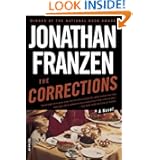Dear Readers,
Let me start off by saying I really enjoyed this book. It is enlightening and useful to me to read about family life in different parts of the globe as well in the next town. Things often don't seem so big a deal if kept in perspective. When I am complaining or something doesn't go right my youngest son says: 'Wow Mom, that's a first world problem!' Kind of puts reality into perspective. I think that is why its good to read books about other ways of life, cultures, and situations that are foreign to me. I am not a history buff, in fact that was one course I had to repeat in college however reading novels about historical time fascinate me.
The abuse in this book is horrific. It can compare to Angela's Ashes, Little Bee, Henrietta Lacks or many others we have read. Think about the keeping of the child in The Light Between the Oceans and how horrible losing your child would be only to find out she wasn't dead but 'adopted' by someone else. While my heart wrenches at abuse I can only be disheartened at the mother's ignorance of it and how she allowed it to go on. As a momma bear I cannot imagine letting someone beat me child. Do you think that is a maturity issue? Anney was too young to have developed a mother's instinct? I am getting on a soapbox for a bit here. Take the case of 12 year old Brooke Bennet (Braintree, VT) who was sexually abused and murdered by her convicted of sexual child abuse uncle. Brook's mother allowed her to go with the uncle. What? How can this be? He murdered Brooke in 2008 and has yet to stand trial. What? How can this be? Why isn't the mother out there fighting for justice for her daughter? How can this be? The mother was charged with nothing! How can this be? (http://www.wcax.com/Global/category.asp?C=142153 I hate that this happens in books and in real life
Step down from soapbox! ;)
Here is my big irritation of this book: According to Wikipedia,
An afterword is a literary device that is often found at the end of a piece of literature. [1] It generally covers the story of how the book came into being, or of how the idea for the book was developed.
Alternatively, it may be written by someone other than the author of the book to provide enriching comment, such as discussing the work's historical or cultural context (especially if the work is being reissued many years after its original publication).
Most of Allison's afterword is a description of her life in relation to the book. I can understand that. As the author you want people to understand your perspective a bit of the history that brought you there. Great, that suffices that the author has first hand experience on the books events from her personal life. But then she gets preachy and tells us how to think about the book and events about society. 'I want the society in which I live to be clear about the reality of our families; to know all the ways in which we avoid the issues of violence, abuse, and societal contempt; and to see survivors as more than victims If we know more about what it means to survive abuse, we will be better able to help those still caught in the whole shameful secret world of physical and sexual violence'. Well, if you didn't say it in the book (which I think she did very well) why do you have to say it afterward? Dorothy, we heard you in the book! I would hazard a guess that if 'society' tried to do something about the abuse suffered by Bone, she and her mother would have denied all and continued in their desperate situation. my cheers go out to the uncles who gave Daddy Glen only half of what he deserved.
Ouch - harsh!
Happy Reading Ya'll,
Barbara
 The Corrections by Jonathan Franzen. I saw this book on Debbie's book shelf and had been wanting to read it. I will tell you that the first 100 pages are all over the board and very descriptive. I am reading in 'hard copy' so I must read fast to give dear husband a chance to read it before I leave for Colorado at the end of the month.
The Corrections by Jonathan Franzen. I saw this book on Debbie's book shelf and had been wanting to read it. I will tell you that the first 100 pages are all over the board and very descriptive. I am reading in 'hard copy' so I must read fast to give dear husband a chance to read it before I leave for Colorado at the end of the month.